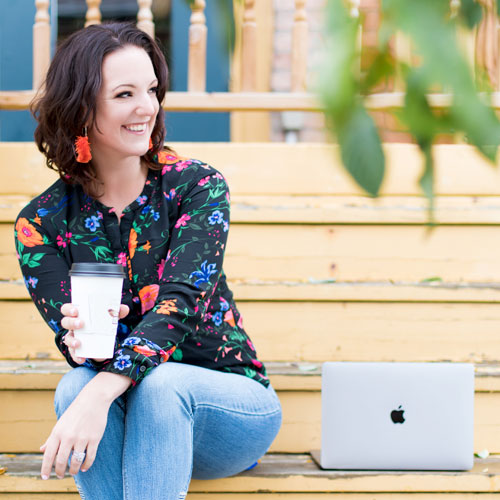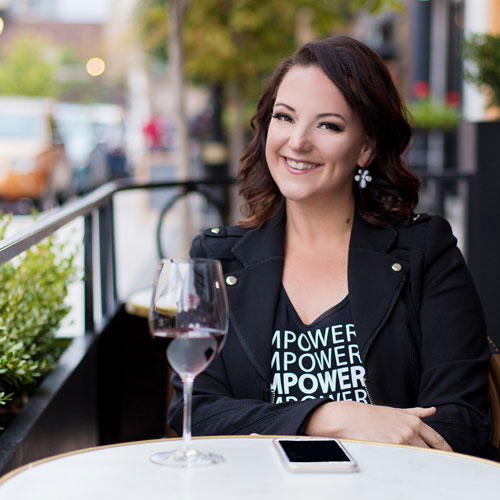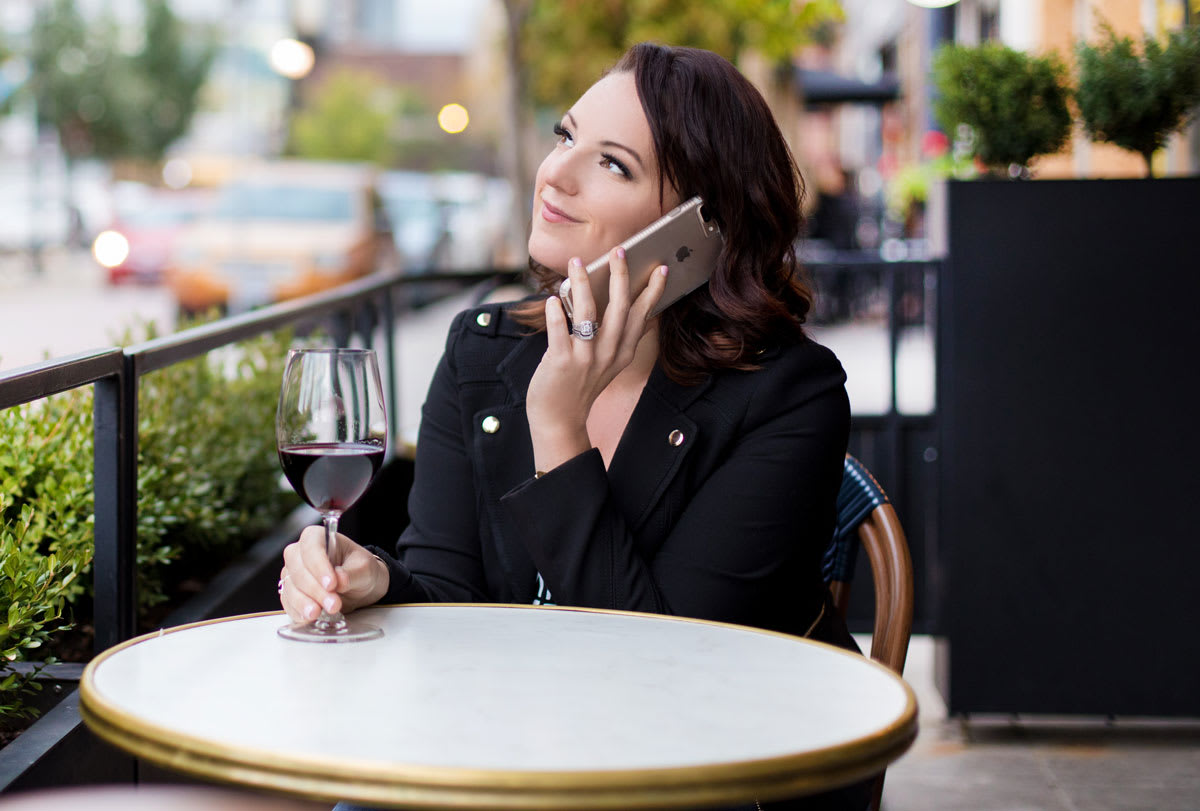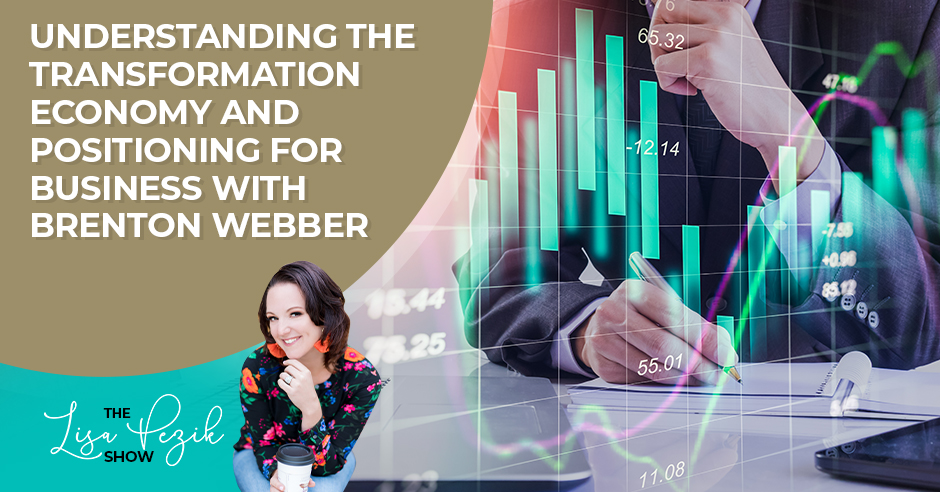
Many businesses struggle with the human aspect of it. As we strive towards our goals and numbers, we tend to forget the people that help us reach them. In this episode, Lisa Pezik sits down with Brenton Webber, a customer experience expert who helps companies and businesses focus on H2H (human to human connection) vs. B2B or B2C. He also challenges the ROI and focuses on ROXI (return on experience investment). Together, they talk about understanding the experience and transformation economy to place you ahead of your competition. Brenton also helps you analyze your meetings and what your employees are saying about what makes them happy. Plus, he also covers how to reach outcomes vs. goals, the dopamine hits that make us happy, and looking at your "bad day behaviors, " a vital eye-opening experience. Follow along as Lisa and Brenton help you understand the humanness in business and more.
---
Watch the episode here:
Listen to the podcast here:
Understanding The Transformation Economy And Positioning For Business With Brenton Webber
I’m honored and excited to have a gentleman from New Zealand. First time, New Zealanite, I don't know what we call you, you can tell me. On the show, Brenton Webber is with us to talk about a concept that is vital to your business, to your life, to your growth, to your happiness, a concept that I want you to get now and start implementing around the customer experience. I'm not here to tell you about a new sales strategy, a new funnel building technique. Brenton is going to talk to us about how do we value human beings? How do we keep humanness in business and corporations? Brenton, thank you for being here.
My absolute pleasure. You can refer to us as New Zealanders. Most people know us as Kiwis. The Kiwi bird is our local bird. They're flightless birds. We were Gondwana, which was an ancient continent. We spread off there. No predators were found on our little islands. We had this incredibly rich and varied birdlife. One of the emblems of New Zealand is it's not the All Black or the Silver fern. It is the Kiwi, so much so that we almost had a referendum on a flag about a few years ago. This is why we're always appearing on The John Oliver Show and stuff like that because what almost got through was a Kiwi bird with laser beams coming out of its eyes. The country wanted that as our flag. That may have been a little bit of an indication and the $3 million that was spent on a flag referendum was taken by the population. It’s not a waste of money at all.
I’ve never had anyone from New Zealand on.
I'm a Pom. I'm not even a Kiwi. I'm soon going to be. I'm not a citizen yet. I'm a resident. I arrived here in 2006. Originally, I'm from England, from the Northwest, from a lovely seaside town, Blackpool. That's where I'm from. I’m from the other side of the planet where the weather is different and we don't have Kiwi birds.
I know it's interesting to always come on and talk about what life is like in your neck of the woods. That's why I love what you do because it doesn't matter what neck of the woods you’re from. Your business is talking about people and how we grow people. I’ll tell them you are an interesting dude because you studied Astronomy and Physics. You're fascinated with how things fit together. I love how you say there's no such thing as B2B or B2C. We're all in H2H, Human to Human business. Tell me a bit about where that came from and what your thoughts are about that.
The CEO is not the most powerful person in an organization. It’s the employees and the customers because that's where the money transacts.
Fundamentally, I think that business for a long time and still by many has forgotten its fundamental building blocks. I love fundamental building blocks, fundamental principles, atomic theories from my scientific background. I love to see the complexity of the world and how things fit together. I'm not an A-B thinker. There are always inputs and amplifications happening. We like to keep things simple, which is important, but I prefer to keep things elegant because sometimes simplicity doesn't fit a model. When it comes to business, what we've forgotten is that fundamentally it's based on neuroscience. It's the same neuroscience that has been inside our brains from wherever we are on the planet. From whichever culture, whatever agenda may be, it's the same neuroscience that was being utilized when we were living in caves and drawing on walls.
It's still the same dopamine reward pathway that allows us to plan for the future. We don't do anything like spend our money or swap our most valuable resource, which is time, with employers or companies that we're researching unless there is some future payoff. Let me take it right the way back to dopamine because dopamine is misunderstood. People think dopamine is almost like a drug. It's got some bad reputation like dopehead and a lot of bad recreations create a huge amount of dopamine, but that's why we liked them. Dopamine is the fundamental neurotransmitter that allows us to think beyond our present moment. Every other neurotransmitter is about the here and now and neuroscientists refer to them as the here and now molecules.
It's important to understand that. We don't want to freak people out when they're doing business with us. We want people to feel safe, but if people are going to spend money on a future outcome or share their time on a future outcome, they need to be thinking about the future. The only neurotransmitter about the future is the molecule of more dopamine. Our brain needs it for our future. It's as vital to us as oxygen is to our lungs and our circulatory. We'll sit in bed and do nothing if we didn't have dopamine. If accidents have led to breakages in the dopamine reward pathway, then you're going to get no desire to reach another goal. You'll have no desire to climb a mountain.
When we look into the distance and we see a mountain, we get a little buzz of dopamine. You can do it now. Anybody who's reading can open the window, pull the blinds up if it's the daytime. Wait until the morning, look as far into the distance as you can and you give yourself a little jolt of dopamine. It's important. It can be hijacked easily and this is where you get drug addiction, sex addiction, gambling addiction, alcoholism. All of that addictions, they're all based on delivering dopamine. If you think about the reason why that stops you from fulfilling goals, as well as your brain, forget your consciousness. Your unconscious brain is saying, “I’ve got my free, massive hit of dopamine. Now I don't need to plan for the future. I just need to plan to get this dopamine.”
That's why it’s important for kids to start setting those goals early and achieving those goals. We get dopamine by achieving goals or learning things. If I go into business with you and I want you to produce content for me, my outcome is to bring new business, to start new conversations, to have some incoming interest in what we're doing. If that's not happening, at some point, I'm going to lose. If I’ve expected that to be the outcome and all I get is lots of likes and no one reached out to me, then potentially that the relationship isn't profitable for me selfishly in the future. I might even keep using your products and services, but I’ll be assessing where else I can bring it from.

That's where loyalty comes in. If we realize that we can value and respect people's dopamine and use it in the right way for their own personal outcomes, not our own outcomes. I'm not talking about the social media companies that literally steal your dopamine and stop you from achieving things because they're giving you a little kick every time someone likes your product or you get a happy birthday from somebody that you've not spoken to. Those little bits of dopamine, they're hijacking that service. Companies are in contact with these dopamine thieves. They're in competition with those guys. They're in competition with drug dealers. They're in competition with casinos because it's all one giant competition for our dopamine. We, as companies, can start thinking about what are the outcomes that humans are wanting to achieve and if we can help them achieve those better. That dopamine reward pathway means that they're not going to be off looking being promiscuous consumers, seeing where half of their wallet may go to.
It's even more important now because I’ve got a podcast as well. We interviewed this wonderful American CX. He's been in CX before the term customer experience was even coined. He believes that the signs are pointing towards we are now firmly in the transformation economy. Before 2013, we were kicking and screaming our way into the experience economy. We'd already been through the service economy. The brand economy was in the ‘80s and ‘90s where it only mattered whether you were in Nike or Adidas. You're part of wherever you are in the world. The experience is still hyper important because we've now got expectations of being looked after and our experiences to be a good one like Amazon giving them one-click refunds.
Everybody has to do that now because as consumers we've got their expectations. That's your experience economy. Companies moving ahead compared to their competition are those companies that know that they're transforming their life, that are working on transforming their customer's lives, employee's lives. Those companies are the ones making the big moves, the ones that are not wasting this crisis that we all find ourselves in this transformation that's been put onto all of us. My message is to think about the basic human building blocks of your business inside and out. Think about how they're trying to transform their lives by their relationship with you and help them do that more. That includes your shareholders. That includes your managers. It includes your leaders.
There's hyper importance by some of my peers on customers and yet customers are super important and employees and there's this EX versus CX debate, which is more important, but that's because they're both humans. It’s like, “Which humans are more important?” None of those humans are more important. However, the power should be with the employees and the customers because that's where the money transacts and the money doesn't transact with the CEO. The CEO is not the most powerful person in an organization. I'm not going to hear from 95% of CEOs ever again, but the reality is if you have a customer-centric view of the world, the most important people are the ones that are having a direct relationship with the customers. Everybody else is just supporting that relationship.
It's relatively simple but the thing is, human behavior is hard and difficult. It's complicated. We are relying too much on metrics because no one thinks in numbers apart from me sometimes because I'm an analytical person. Generally, those numbers aren't giving us much insight as we're trying to craft better customer experiences or create transformation. It is as simple as this. Listen to your customers, listen to your employees. Work out what you can action and make some changes. Those are all of the principles. All of the models, all of the hundreds of questions that are in surveys, the core of it is, how do you engage? How do you get insight from the humans inside and outside your organization so that you can make insight-driven decisions?\
No one gets any dopamine for activity. They only get dopamine for outcomes.
It needs to be systemized. We have to take a few steps. We have to think, “If we're doing that, we want to do that in the most engaging way.” We have to realize that the survey aspect is part of the customer journey. It’s not just this little bit where we can interrupt them with a badly designed or a badly worded survey that doesn't respond, or a survey that they never hear from again, or a badly worded question for a $10,000 purchase when the value exchange is unbalanced. I don't get why somebody who sold me a $43,000 car wouldn't pick up the phone after two weeks and ask me personally how it's going. That information can be systemized.
It is simple. Sometimes we make it harder with technology. In 2020, there are two types of technologies. There are those that are trying to facilitate closer human connection and there are those that are trying to ambush human connection. All of them fall within those areas. One is an attention-seeking technology and tries to get as much engagement as possible to attention-seeking. The other is how do we help this person get more time back? How do we help them spend less time on these projects where they can focus on creativity? How can we give them a new canvas that they can play with? What are other parts of the transformative journey that they may be on that they're currently experiencing pain points that have got nothing to do with me but are impacting the outcome that they're employing me or my product or service for?
It's interesting that when you look at that statistic, it's like 80% of purchases are made on emotions and emotional branding and that speaks to everything you're talking about with being in this transformation economy. It's interesting because, in my world, I build a lot of brands and products and services. The number one thing that blows people's minds is when someone is building a $10,000 package or a $20,000 coaching package or a consultation thing. They say to me, “I want it completely evergreen.” I say to them, “$20,000 is a conversation. $10,000 is a conversation.” They're like, “What do you mean? I have to get on and talk to somebody.”
Trust is we have to get on and connect with people. It's the connection, it's the safety and the security and that you're listening to them usually is what seals the deal on that $20,000 or $30,000 or whatever is bigger to you. It a lot of times has absolutely nothing to do with you're going to get this many hours with me in this. The deliverables. People want to know, they're seen, they're valued, they're heard. Sometimes in my world, that's where it gets lost is that everybody wants to evergreen everything and everybody wants this to make money while you sleep, do the least amount to make the most. What we're doing when we do that is strip away. We're stripping away the human connection.
You have to systemize that. Companies, when we speak to founders, there are two types of founders. Those that do understand the outcome they're trying to achieve and those that don't. The ones that do understand the outcome or can help understand the outcome. They're usually connected with the humans outside their organization. They've taken an interest in their customer journey. They've got this constant feedback going on so that they don't often see the benefit of systemizing it, sometimes it can be a bit too early to systemize it. We're all bootstrapping everything. Put some money aside on a customer feedback tool that's going to create insights that will pay off in the long-term. It’s difficult for a founder to agree to that or to see the value in that.

They can start systemizing like a CRM system. That's one of the things. Fill it with good stuff, fill it with stuff that you can use as well. Don't collect birthdays if you're never going to do anything. Does reaching out to somebody on their birthday fit with the level of trust that you've built up? If I had been on somebody's website and hadn't engaged with them apart from downloading a white paper, but I had to give them my birthday, I got a happy birthday from them. It would be weird.
Make sure there's always a strategy or there's an intent behind and it's for connection and for relationship building.
You can pick up as you go. CRMs are often seen as this tool and I’ve seen in my sales career, it's something you have to fill in because it's going to be checked. If I think about the number of CRM systems that I’ve been asked to fill in over my sales career, I don't think anybody has clarified why. It's much more of what to do and this needs to be done because we have to check on you. All of a sudden, it doesn't circle back to providing a better, more personalized service for our clients and customers. That's something a customer-centric salesperson can get behind. It's the outcome, isn't it? It's that focus on the way we're doing things. We need to stop and ask our customers. We need to understand why. The problem with asking customers why they're doing things sometimes they don't necessarily know. They don't know yet. They don't necessarily write things either.
I say, “Don't survey people.” They're like, “You have to survey in the beginning stages.” I say, “They don't know what they want. They don't know what they need in the beginning early stages.” What do you think about companies in this landscape where we're doing this in 2020? A lot of people have been working from home and there are companies and bosses and places that are like, “No, I'm not allowing my employees to do that.” This whole, “How do I know if you're being productive at home?” There's this myth around hours worked equals outcome or productivity or success. As entrepreneurs, we know that is not true whatsoever. You could be crazy productive in twenty minutes than something that takes eight hours. Where do you see the businesses and the brands that are going to succeed? What do you forecast? What do they need to have to know they're going to be successful?
An outcome mindset has been forced onto everybody apart from those that are saying people should be taxing themselves for working from home and all of those things and cutting their wages. Those people need to realize that they're dinosaurs when it comes to the wider world that we are exchanging our time and money within. Where do you begin? Start with your meetings. What are you focusing on? I see it everywhere at the moment in New Zealand where people are questioning what the hourly rate is of somebody who's a consultant. I'm saying, “Why are you even looking at the hourly rate?” I'm going to take it back to a cleaner. We had a cleaner who said she could do three hours and it was $20.
When people commit to their own journey, they achieve greater things than when they're on somebody else's expected trajectory.
I'd come in after the cleaning. I'd be checking whether or not there would be three hours' worth of work done. I wasn't coming in to check whether or not the house was to the standard that I expected it to be cleaned. I don't think that people work that well when they're being judged on their activity. You get far better productivity from people when they're achieving things. No one gets any dopamine for activity. They only get dopamine for outcomes. You need to create your own expected activity with great outcomes and then your teams can think about what's required for those outcomes. Give them we're going to Everest and let them work out what the map is. Let them orientate themselves. If I walk next door and say, “Here's your map and you're going to Everest,” as opposed to, “This is the chance to go. We'll pay for you to get there.” It's probably a bad metaphor there if you think about it, but you know what I mean. When people commit to their own journey, they achieve greater things than when they're on somebody else's expected trajectory.
They get to bring their own skills, talents, and passions.
It’s egotistical that we think we know how everything should be done and how long it should take. I’ll be honest, if I find somebody that can save me ten hours in my business, let's say we've got 50 hours this week. One of my days, if they could give me that back, I don't care if they get that job down to five hours. I’ll still pay them for the job. They're saving me that time. They've worked out a way to do it in a more efficient way. Maybe they'll have time to do more things. I’ve seen throughout my entire career that as people achieve things, they get more and more engaged. It sounds trite to say some of these things. It seems such common sense. Some of those business owners in their family home, does micromanagement work with the children? It doesn't work with mine.
I can't remember whether we were talking in the green room or it was part of this conversation. We were talking for about 30 minutes before we started. It was fascinating. We were talking about the children aspect. We were talking about what happens when we get stressed. I’ve got a friend Simon, who helps people map bad day behaviors. That's powerful to know how you behave badly at your worst because that's what you need to be looking out for. Forget about being perfect in the areas where you're good. The biggest pain point is the biggest opportunity. Your biggest problem is your biggest opportunity.
I was sharing how I go into hyper control mode and I micromanage my entire family to the minute. All that does is end up with my husband, my son and me in tears. It doesn't work. I love that bad day behavior. Look at how you're operating. I look at how you're interacting. You're talking about that customer experience and how you're interacting with other people and what effect that's having. I love that. I need to have you back on to dive deeper into this.
I like to spend time on pain points. Companies should embrace their pain points. People are doing that in 2020 though. I’ll circle around to 2020. That's literally what's had to happen. I don't think I'm telling a lot of people anything new. Maybe it's some confirmation. If you think about your year, you've been looking for the biggest pain points. You’ve been fixing those biggest pain points because those biggest pain points have been stopping you. It's like taking the handbrake off. Handbrakes are the biggest issue. Let the handbrake go and then you can start tinkering with the engine and putting nice mufflers on and whatnot, but take the handbrake off first. Whatever is number one, get rid of that. I'd love to come back on the show. I'm sorry I don't have more time.
I appreciate you taking the time out. What is the best way if they want to get in contact with you? What's the best way to get connected to you?
I have a low bar of acceptance on LinkedIn. Please say hi on there. Come to the website, www.HalfTimeOrange.co.nz. We've republished the website. We'd love to know what you think about it as well. We're all working in silos of the people that we might be speaking to and we might be communicating with. We're launching our video-based voice of customer platform on our own website. If you'd like to view the website and then come and tell us what you think, good or bad, we'd love to hear from you.
Brenton, thank you for being here. Readers, thank you for being here and we'll catch you next time.
Important Links:
- Brenton Webber
- LinkedIn - Brenton Webber
- https://www.LinkedIn.com/company/half-time-orange-ltd/
About Brenton Webber
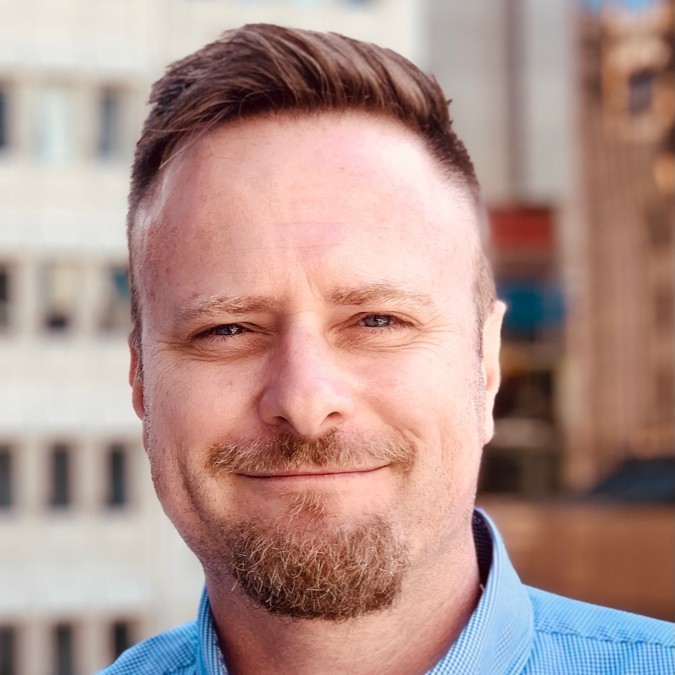 Customer experience (CX) includes all the thoughts, feelings and experiences a customer has from when they first think about an unmet need to achieving a successful outcome. It includes every interaction with your company or brand and how it makes them feel. Customer journey mapping, segmentation and Net Promoter Scores are part of it but CX needs to be a core value for companies. There’s no such thing as B2B or B2C anymore. We’re all in H2H (human to human) businesses now and companies who deliver great experiences will prosper. Our experiences shape our lives. I’ve always enjoyed staring at the stars and considering the bigger picture. I studied Astronomy & Physics because I was fascinated by how things fit together. But I’m also a people person and I wasn’t cut out for a career in science. Instead, I fell into media sales and worked for some great brands including the Financial Times (UK) and The Listener (NZ). I also worked for some companies with little understanding of their customers.
Customer experience (CX) includes all the thoughts, feelings and experiences a customer has from when they first think about an unmet need to achieving a successful outcome. It includes every interaction with your company or brand and how it makes them feel. Customer journey mapping, segmentation and Net Promoter Scores are part of it but CX needs to be a core value for companies. There’s no such thing as B2B or B2C anymore. We’re all in H2H (human to human) businesses now and companies who deliver great experiences will prosper. Our experiences shape our lives. I’ve always enjoyed staring at the stars and considering the bigger picture. I studied Astronomy & Physics because I was fascinated by how things fit together. But I’m also a people person and I wasn’t cut out for a career in science. Instead, I fell into media sales and worked for some great brands including the Financial Times (UK) and The Listener (NZ). I also worked for some companies with little understanding of their customers.
After 10 years in sales I lost faith in what I was doing. I wasn't solving people's problems. I wasn't making a difference. Customers were seen as assets, not as individuals. I was thinking about the customer journey but everyone else was focused on closing deals. So I escaped the rat race and taught scuba diving for a couple of years on the Great Barrier Reef in Australia. Spending time underwater always helps me to see things much more clearly. I realised I was much more interested in the customers I was connecting with than the product I was selling. I got back into sales but soon realised my customer-centric attitude was at odds with the old-school way of doing things. Sales is all about acquisition. Working for a loyalty company opened my eyes to the value of retention. Working for a CX consultancy introduced me to the fastest growing discipline in marketing and I was sold on it. I founded Half Time Orange in 2018 to improve the lives of humans inside and outside organisations by designing and implementing practical CX strategies and systems that work. ROXI (return on experience investment) is the new ROI (return on investment) and if you’re investing money in CX strategy or software you want to know how it will benefit your business. nWe use bespoke insights to provide bespoke solutions for companies to transform their culture, engage with customers, and grow their business. We currently work with clients in NZ, Australia, Singapore, and the UK across a range of industries including Retail, Healthcare, Technology, Financial Services and Media.

